第25章 CHAPTER V(2)
William Douglas, who was the eldest son of Lord Lochleven, on his mother's side half-brother of Murray, was a man of from thirty-five to thirty-six years of age, athletic, with hard and strongly pronounced features, red-haired like all the younger branch, and who had inherited that paternal hatred that for a century the Douglases cherished against the Stuarts, and which was shown by so many plots, rebellions, and assassinations. According as fortune had favoured or deserted Murray, William Douglas had seen the rays of the fraternal star draw near or away from him; he had then felt that he was living in another's life, and was devoted, body and soul, to him who was his cause of greatness or of abasement. Mary's fall, which must necessarily raise Murray, was thus a source of joy for him, and the Confederate lords could not have chosen better than in confiding the safe-keeping of their prisoner to the instinctive spite of Lady Douglas and to the intelligent hatred of her son.
As to Little Douglas, he was, as we have said, a child of twelve, for some months an orphan, whom the Lochlevens had taken charge of, and whom they made buy the bread they gave him by all sorts of harshness.
The result was that the child, proud and spiteful as a Douglas, and knowing, although his fortune was inferior, that his birth was equal to his proud relatives, had little by little changed his early gratitude into lasting and profound hatred: for one used to say that among the Douglases there was an age for loving, but that there was none for hating. It results that, feeling his weakness and isolation, the child was self-contained with strength beyond his years, and, humble and submissive in appearance, only awaited the moment when, a grown-up young man, he could leave Lochleven, and perhaps avenge himself for the proud protection of those who dwelt there. But the feelings that we have just expressed did not extend to all the members of the family: as much as from the bottom of his heart the little Douglas detested William and his mother, so much he loved George, the second of Lady Lochleven's sons, of whom we have not yet spoken, because, being away from the castle when the queen arrived, we have not yet found an opportunity to present him to our readers.
George, who at this time might have been about twenty-five or twenty-six years old, was the second son of Lord Lochleven; but by a singular chance, that his mother's adventurous youth had caused Sir William to interpret amiss, this second son had none of the characteristic features of the Douglases' full cheeks, high colour, large ears, and red hair. The result was that poor George, who, on the contrary, had been given by nature pale cheeks, dark blue eyes, and black hair, had been since coming into the world an object of indifference to his father and of dislike to his elder brother. As to his mother, whether she were indeed in good faith surprised like Lord Douglas at this difference in race, whether she knew the cause and inwardly reproached herself, George had never been, ostensibly at least, the object of a very lively maternal affection; so the young man, followed from his childhood by a fatality that he could not explain, had sprung up like a wild shrub, full of sap and strength, but uncultivated and solitary. Besides, from the time when he was fifteen, one was accustomed to his motiveless absences, which the indifference that everyone bore him made moreover perfectly explicable; from time to time, however, he was seen to reappear at the castle, like those migratory birds which always return to the same place but only stay a moment, then take their way again without one's knowing towards what spot in the world they are directing their flight.
An instinct of misfortune in common had drawn Little Douglas to George. George, seeing the child ill-treated by everyone, had conceived an affection for him, and Little Douglas, feeling himself loved amid the atmosphere of indifference around him, turned with open arms and heart to George: it resulted from this mutual liking that one day, when the child had committed I do not know what fault, and that William Douglas raised the whip he beat his dogs with to strike him, that George, who was sitting on a stone, sad and thoughtful, had immediately sprung up, snatched the whip from his brother's hands and had thrown it far from him. At this insult William had drawn his sword, and George his, so that these two brothers, who had hated one another for twenty years like two enemies, were going to cut one another's throats, when Little Douglas, who had picked up the whip, coming back and kneeling before William, offered him the ignominious weapon, saying "Strike, cousin; I have deserved it."
This behaviour of the child had caused some minutes' reflection to the two young men, who, terrified at the crime they were about to commit, had returned their swords to their scabbards and had each gone away in silence. Since this incident the friendship of George and Little Douglas had acquired new strength, and on the child's side it had become veneration.
We dwell upon all these details somewhat at length, perhaps, but no doubt our readers will pardon us when they see the use to be made of them.